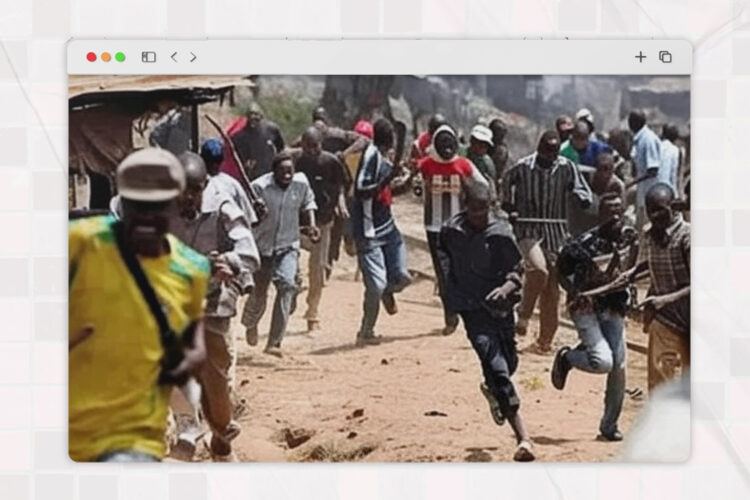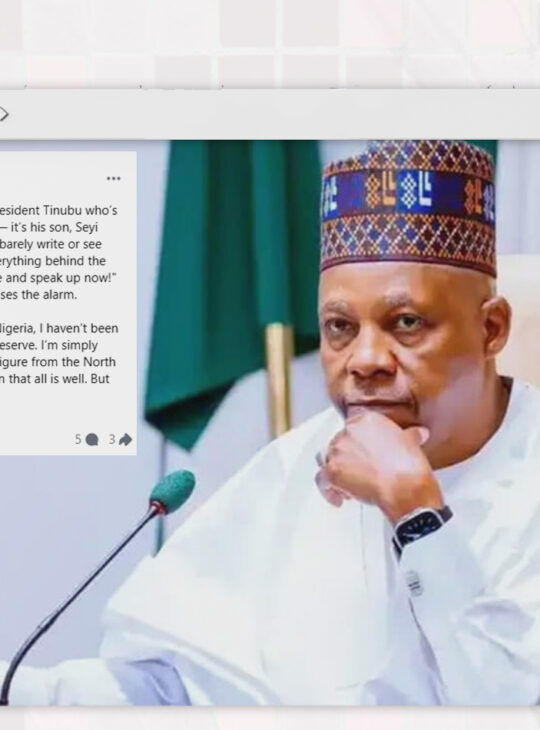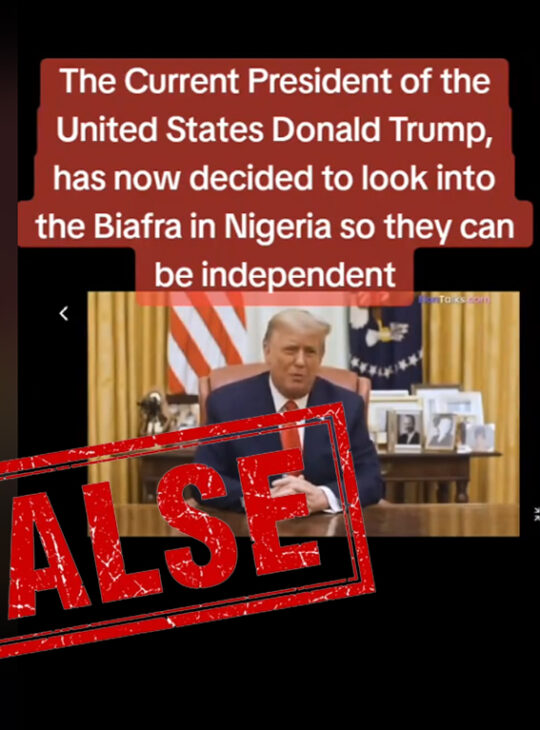Holy Words, Twisted Truths: How Religious Misinformation Fuels Conflict in Nigeria
Misinformation has become a pervasive issue in Nigeria, it has transcended political or health misinformation to ethnic and religious misinformation. These misrepresentations of facts have played a significant role in triggering and sustaining various conflicts throughout the country.
As a multi-religious nation, Nigeria presents herself as a country with a complex landscape for religious discussions. In the past few years, misinformation regarding religion has incited acts of violence and terrorism in the country, leading to loss of lives and properties, and a hostile environment for adherents of all faiths. Such incidents reflect deeper tensions that misinformation continues to inflame and rewrite the country’s history.
Historical Conflicts in Nigeria Triggered by Misinformation
The jihadi terrorist group, Boko Haram has been operating in the North-Eastern part of Nigeria since the early 2000s. It has constantly used misinformation to justify its anti-Western education agenda. By promoting false narratives about Western education being un-Islamic, they have perpetrated attacks on various communities and schools, leading to abduction of students including over 270 girls in Chibok in 2014.
In May 2022, Deborah Yakubu, a sophomore student at Shehu Shagari College of Education, was brutally murdered by a mob after she was accused of blasphemy against Prophet Muhammad. Vanguard News revealed that the quick spread of misinformation regarding her WhatsApp post greatly fueled her violent death.
Last year, violence erupted after the Worldwide United Methodist Church repealed LGBTQ bans, leading to the breakaway Global Methodist Church. This doctrinal divide did not take too long to escalate into a full-blown conflict, with both sides twisting the scripture to suit their stance. AP reported that homes were burned, two children died, and about ten people were injured after a confrontation between the two factions in Taraba state. Local bishops condemned the violence and held the Global Methodist Church accountable for spreading misinformation.
These events have shown that religious misinformation or outright disinformation has contributed to tensions in the country, causing avoidable deaths and violence.
Online Conversations and Narratives About Religion
Misleading or false information about religion often spreads rapidly on social media, influencing public opinion and shaping real-world attitudes and behaviors. Some common ways religious misinformation manifests online include:
Religious Leaders’ Comments: Many religious leaders post controversial or provocative takes on social media. This often causes tensions to rise. An example of this can be found in this Facebook post about Mary, the mother of Jesus Christ. The comments on the post from Muslims and Christians include insults and all sorts of misinformation.
Politics of Religious Identity: You might have heard about the supposed ‘Islamization’ or ‘Christianization’ of Nigeria agenda. Conspiracy theories abound about the government’s plans to impose a particular religion on Nigerians. For example, some social media users criticized former presidential candidate Peter Obi’s visits and donations to many churches. They imply that this gesture can be linked to his plan to ‘christianize’ the country. This claim disregards the fact that Obi had actually also visited and donated to some Islamic schools. And there is no monopoly on this because President Bola Ahmed Tinubu’s visit to Saudi Arabia for peace efforts in the Middle East was also tagged as part of the plans to make Nigeria an Islamic state. In essence, religious cum political misinformation is overabundant in Nigeria’s social media space.
Interfaith Debates on Social Media: Nigerians often engage in constant Christian-Muslim ‘rivalries’ online. Social media users engage in heated conversations regarding one another’s faith. These debates, often fueled by religious misinformation, sometimes escalate to an outright display of hostility.
These are some of the ways through which religious misinformation has fueled tensions and conflicts in Nigeria while leaving a lasting impact on the polity.
Impacts of Religious Misinformation on Nigerians
Religious misinformation can have an extreme impact on society in various ways, including fostering division and conflict. The International Center for Law and Religion Studies, ICLRS, stated this is more possible in a country like Nigeria, given its plurality of ethnicities and faith practices. When religious misinformation circulates, it deepens misunderstandings and fuels prejudice and hate.
Also, it promotes superstitious and harmful practices by some religious groups. This includes rejecting medical treatments and opting for miracle healings, endorsing harmful rituals, and distorting interpretations of religious doctrines.
The Boko Haram phenomenon is another recurring impact. They are known for twisting Islamic teachings to justify their acts of violence and to brainwash their recruits. These recruits, who are made to carry out suicide attacks, are told that they will be rewarded with paradise. However, many Islamic clerics have disputed this by reiterating that killing innocent people is considered a grave crime in Islam. Hence, the narrative perpetuated by extremist groups like Boko Haram is outright disinformation.
Given its sensitivity, religious misinformation immensely contributes to the larger misinformation problem in Nigeria. It normalises the acceptance of unverified information. When religious misinformation is ingrained with other societal issues like politics, health, or education, it further blurs the lines between fact and fiction; faith and truth.
The Future Ahead
Curbing religious misinformation requires a multifaceted approach, including community engagement, media literacy, and intense promotion of critical thinking. Also, actively working with religious leaders is one of the best ways to reduce religious misinformation, as they often have large followings and their teachings are widely trusted by their followers. If religious institutions focus on using social media platforms to spread evidence-backed information about religion, it will be a huge triumph over religious misinformation.
Religious institutions can also invest in fact-check initiatives. Various fact-check organisations have a wide range of topics they cover, but there isn’t much coverage on religious misinformation. If there is collaboration between religious institutions and fact-checkers on religious misinformation, it will go a long way to reduce misrepresentation of religious facts.
Religious misinformation is not just an issue of misrepresentation of one’s beliefs. It is a societal challenge that undermines social harmony, hinders progress, and creates room for tension and violent conflict.



